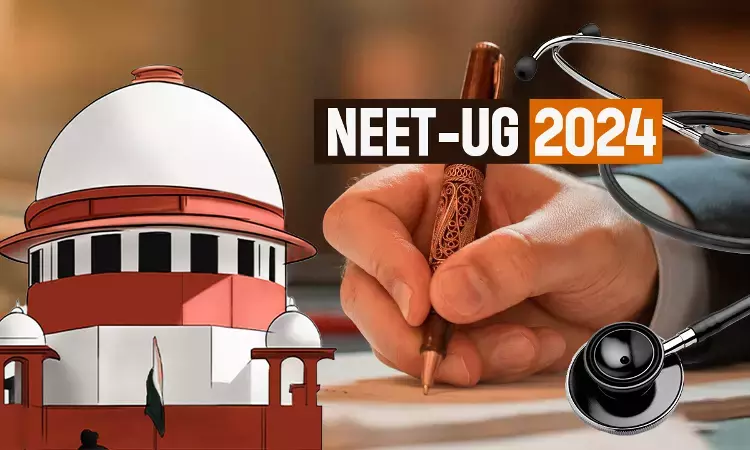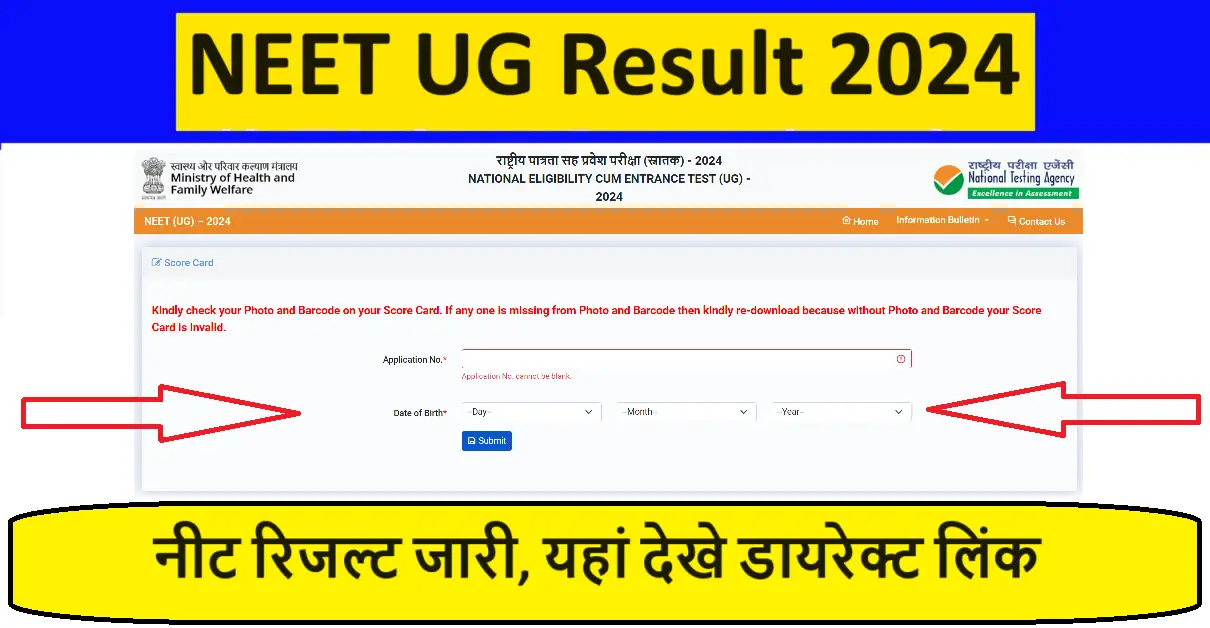Supreme Court Extends Deadline : The National Eligibility cum Entrance Test for Undergraduate (NEET-UG) serves as a pivotal examination for aspiring medical students in India. This standardized test is essential for admission into various undergraduate courses in medicine, dentistry, and other health sciences. Conducted annually, NEET-UG assesses the knowledge and understanding of students in subjects such as Physics, Chemistry, and Biology, which are fundamental for success in the medical field.
The structure of NEET-UG comprises multiple-choice questions that evaluate a candidate’s grasp of the material. The examination consists of 180 questions, with each question carrying four marks for every correct answer and a penalty of one mark for incorrect responses. This scoring system aims to value accuracy and knowledge retention among prospective candidates. For students, doing well in NEET-UG is not only a matter of academic performance but a gateway to a career in medicine, and thus, it holds immense significance in their future endeavors.

The importance of NEET-UG cannot be understated, as it plays a critical role in standardizing medical admissions across India. Unlike other entrance exams that may be conducted by individual institutions, NEET-UG provides a common platform that ensures fairness and transparency in the selection process. However, the exam has faced several challenges, including issues related to accessibility, coaching disparities, and regional variations in performance. Additionally, there are rising concerns over the pressure it places on students and the implications of a single examination determining the future of numerous candidates.
As the landscape of medical education evolves, understanding NEET-UG’s significance is crucial. The ongoing deliberations surrounding the examination are aimed at addressing these challenges, ensuring that the process remains equitable, efficient, and inclusive, ultimately serving the best interests of the medical education system in India.
Supreme Court Extends Deadline : Decision on Expert Committee’s Report
Recently, the Supreme Court of India rendered a critical decision to extend the deadline for the high-level expert committee’s report regarding the reforms of the National Eligibility cum Entrance Test (NEET-UG). This decision stems from a significant need to reassess the examination process that affects countless students aspiring for medical careers. In response to rising concerns about the transparency and fairness of the exam, the committee was formed to provide a comprehensive evaluation of the NEET system and suggest feasible reforms.
The expert committee, which was constituted after rigorous discussions among stakeholders in the educational sector, aims to address several key issues. These include the adequacy of the current syllabus, the methodology of assessment, and the overall accessibility of the NEET examination. The committee’s objectives are to ensure that the examination not only tests students effectively but also upholds the principles of equity and integrity. Given the importance of NEET in determining admission to medical colleges, the implications of its reforms will be far-reaching.
The extension of the deadline for the committee’s report reflects the Supreme Court’s recognition of the complexities involved in the reform process. It acknowledges that adequate time is essential for a thorough review of the extensive input from various educational stakeholders, which includes teachers, students, and policy-makers. This decision grants the committee the necessary latitude to meticulously craft recommendations that could potentially overhaul the existing NEET framework.
This ruling holds promising implications for students, educational institutions, and the overall examination landscape. A careful and thoughtful approach to reforming NEET could lead to a more equitable and reliable assessment system that benefits all parties involved. Students may ultimately find improved preparation methods and assessment fairness, resulting in a more competitive and transparent medical admission process.
Supreme Court Extends Deadline: Their Impact on NEET-UG
The National Eligibility cum Entrance Test for Undergraduate (NEET-UG) has undergone scrutiny, prompting calls for reforms to address existing challenges. The expert committee, tasked with evaluating the NEET-UG format, is expected to suggest a range of reforms aimed at improving the assessment process. One critical area of focus is the implementation of fairer assessment methods. Currently, concerns about the alignment of the syllabus with the examination content lead to discrepancies among students’ preparedness levels. Reforming the assessment methods may involve diversifying question types and incorporating more practical scenarios that better reflect the complexities of medical education.
Accessibility is another significant concern for NEET-UG. Reports indicate that many students, particularly from rural areas, face challenges accessing quality preparatory resources. To address this, the expert committee could propose measures such as the enhancement of online learning platforms, distribution of free or subsidized study materials, and the establishment of more exam centers in remote locations. Making NEET-UG more accessible would not only level the playing field for all aspirants but also potentially increase the pool of candidates entering the medical field.
Transparency in the examination process is also paramount. Suggestions might include making the evaluation criteria public and providing a detailed analysis of the exam patterns. This transparency could alleviate concerns regarding bias or subjectivity in the grading system. However, while these reforms promise significant positive impacts, there are potential drawbacks. For instance, alterations in assessment strategies might lead to initial confusion among students, and the cost of implementing widespread changes could place a strain on existing resources.
Overall, the proposed reforms have the potential to reshape NEET-UG significantly, positively influencing students’ experiences and the broader medical education landscape in India. Thoughtful implementation is crucial to ensure that these changes contribute effectively to the assessment of aspiring medical professionals.
Conclusion and Future Outlook for NEET-UG
In light of the recent Supreme Court decision to extend the deadline for NEET-UG exam reforms, it is essential to reflect on the potential implications this decision holds for future medical education in India. The NEET-UG examination serves as a critical gateway for aspiring medical students, and effective reforms are crucial to ensure a fair and equitable process. Throughout this discussion, we have examined various aspects of the reforms and their significance for students and the healthcare sector.
The importance of timely and effective reforms cannot be overstated. As stakeholders look forward to the implementation of adjustments aimed at enhancing the NEET-UG examination framework, the focus must remain on creating a more transparent, streamlined, and accessible examination process. This effort is vital for ensuring that the best candidates gain admission into medical programs, ultimately improving the quality of healthcare professionals in the country.
Future discussions surrounding NEET-UG reforms should center around several key areas, including the incorporation of technology in exam administration, the consideration of regional disparities in educational access, and ongoing evaluations of the examination structure. Engaging with educators, healthcare professionals, and policymakers will be crucial to creating a comprehensive approach to these reforms, allowing for an examination system that reflects the diverse needs of Indian society.
As various educational authorities and institutions prepare for the upcoming changes, students and their families will undoubtedly have heightened expectations. It is essential that all stakeholders remain committed to collaborating and addressing the challenges that lie ahead. By focusing on constructive dialogue and sustained efforts, the ultimate goal of enhancing the NEET-UG examination system can be achieved, ensuring a brighter future for both the medical profession and aspiring healthcare students.





